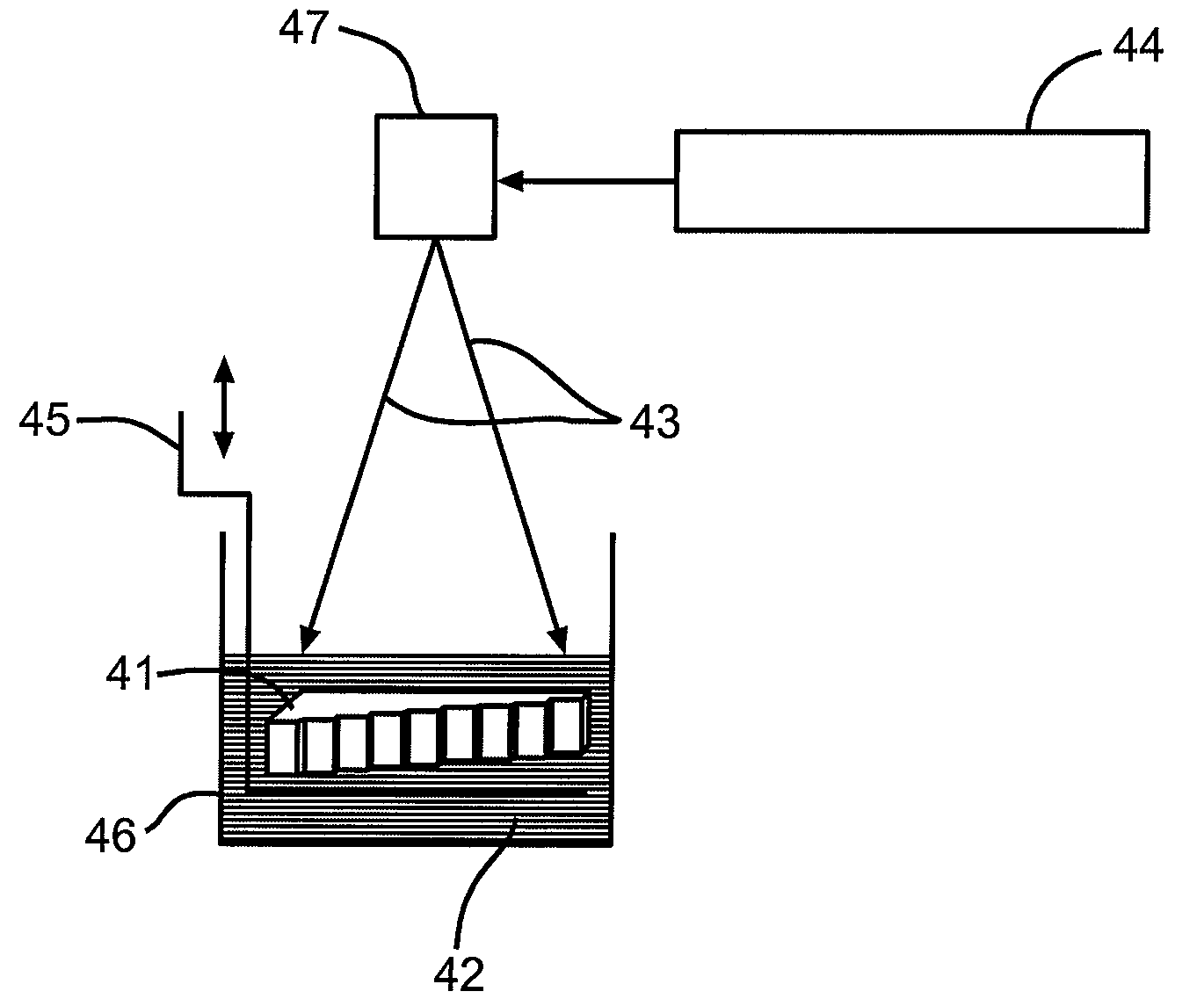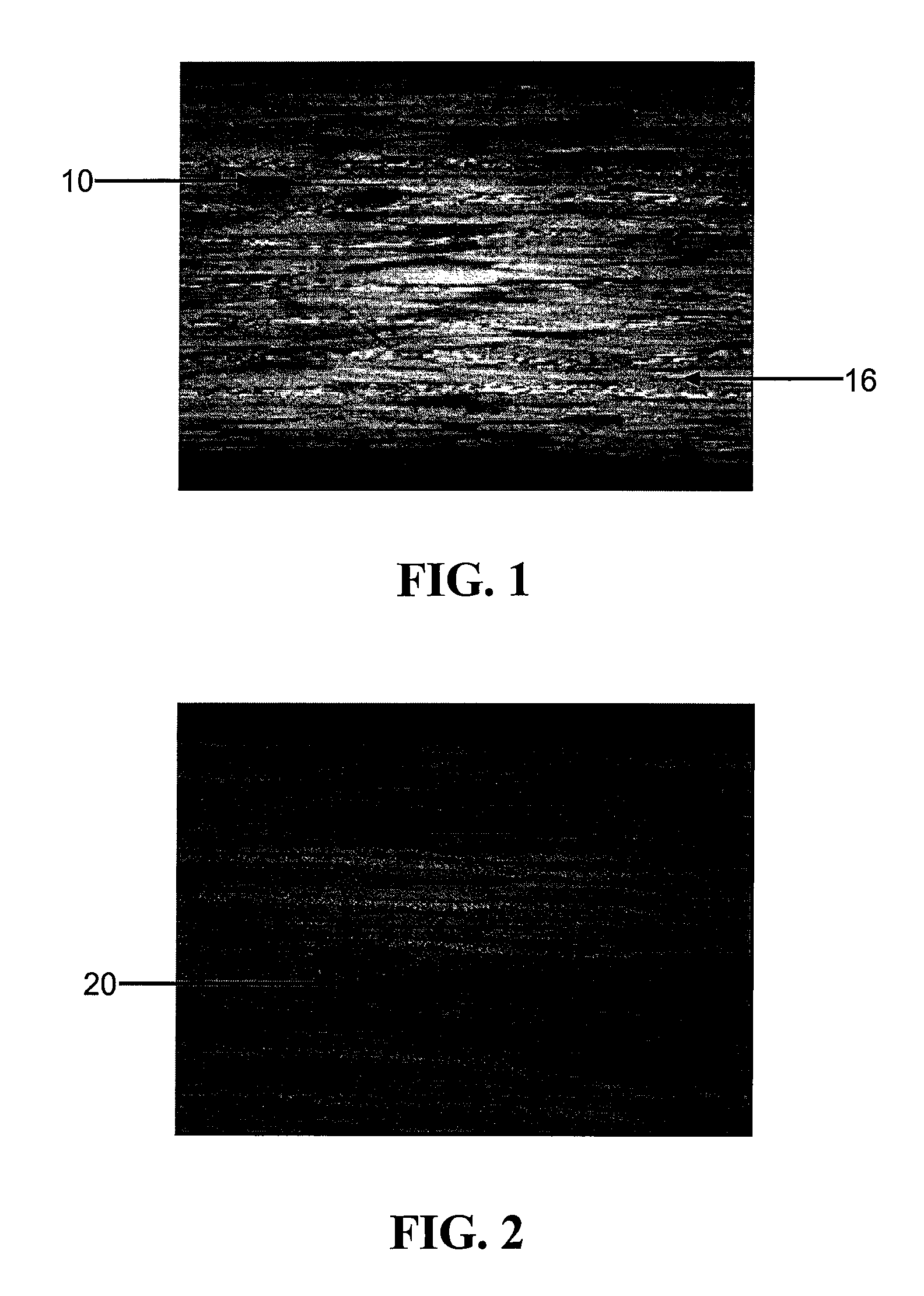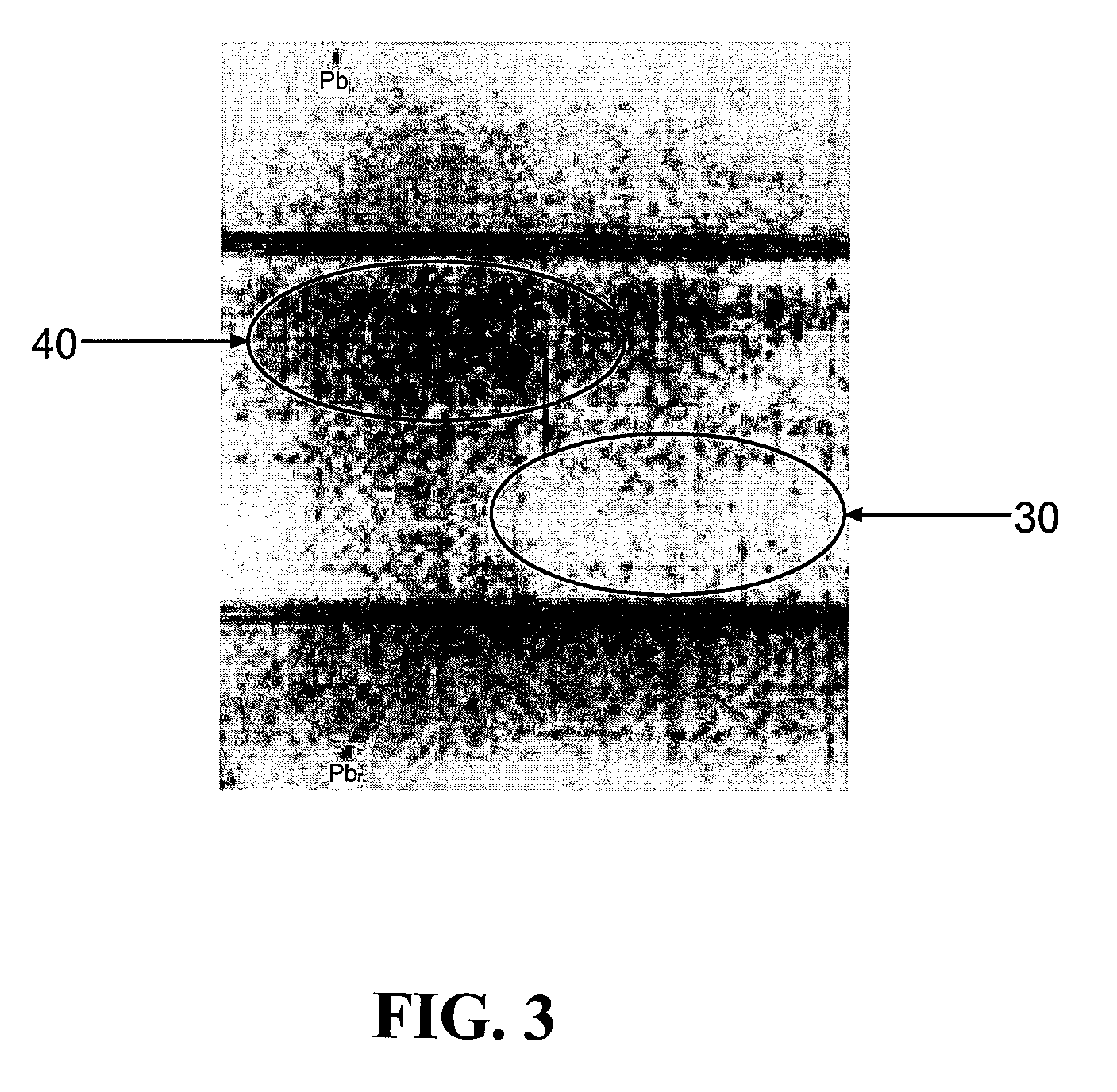Porosity reference standard utilizing one or more hollow, non-cylindrical shafts
a reference standard and non-cylindrical technology, applied in the direction of instruments, specific gravity measurement, structural/machine measurement, etc., can solve the problem of difficulty in tying detection and quantification of porosity
- Summary
- Abstract
- Description
- Claims
- Application Information
AI Technical Summary
Benefits of technology
Problems solved by technology
Method used
Image
Examples
Embodiment Construction
[0025]The following detailed description is of the best currently contemplated modes of carrying out the invention. The description is not to be taken in a limiting sense, but is made merely for the purpose of illustrating the general principles of the invention, since the scope of the invention is best defined by the appended claims.
[0026]Composite laminates consist of two primary constituents including a fiber, and a resin matrix that bonds the fibers together. The fiber is typically graphite. Porosity in composite laminates is an unwanted product of the manufacturing cure cycle and is characterized by voids or a lack of resin within the laminate. FIG. 1 depicts a photomicrograph of a composite laminate with areas of porosity 10 shown as elliptical shapes that appear darker than the surrounding non-porous areas 16. The morphology and distribution of the porosity vary depending on a number of processing variables. The size of porosity also varies from relatively small diameters of ...
PUM
| Property | Measurement | Unit |
|---|---|---|
| porosity | aaaaa | aaaaa |
| ultrasonic inspection | aaaaa | aaaaa |
| porosity | aaaaa | aaaaa |
Abstract
Description
Claims
Application Information
 Login to View More
Login to View More - R&D
- Intellectual Property
- Life Sciences
- Materials
- Tech Scout
- Unparalleled Data Quality
- Higher Quality Content
- 60% Fewer Hallucinations
Browse by: Latest US Patents, China's latest patents, Technical Efficacy Thesaurus, Application Domain, Technology Topic, Popular Technical Reports.
© 2025 PatSnap. All rights reserved.Legal|Privacy policy|Modern Slavery Act Transparency Statement|Sitemap|About US| Contact US: help@patsnap.com



